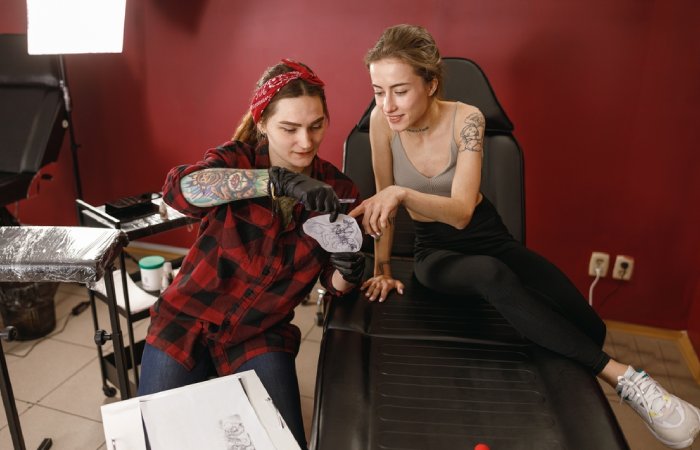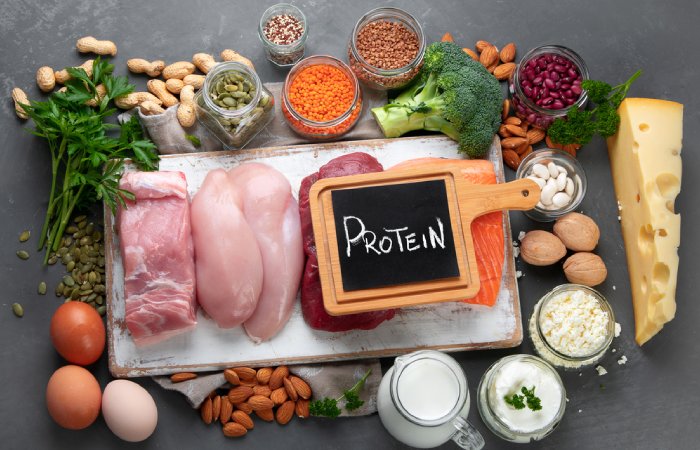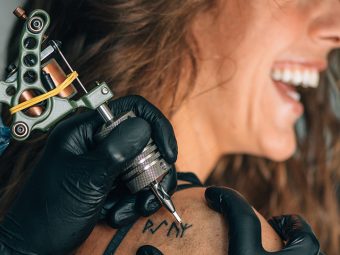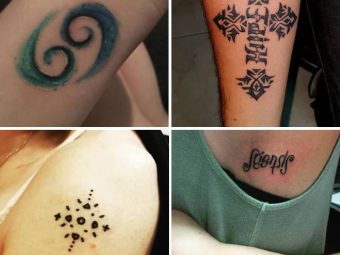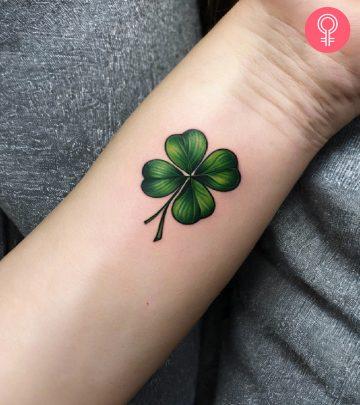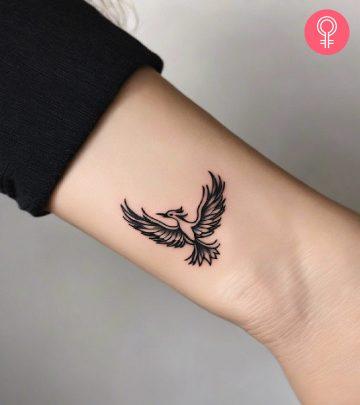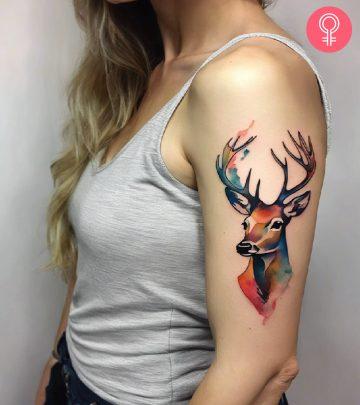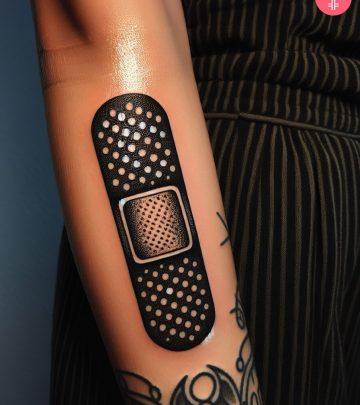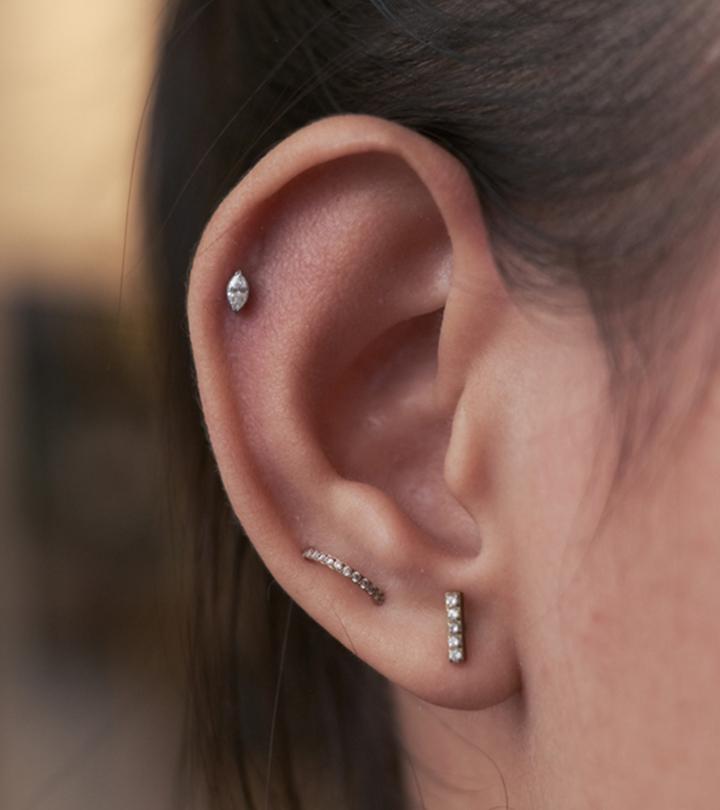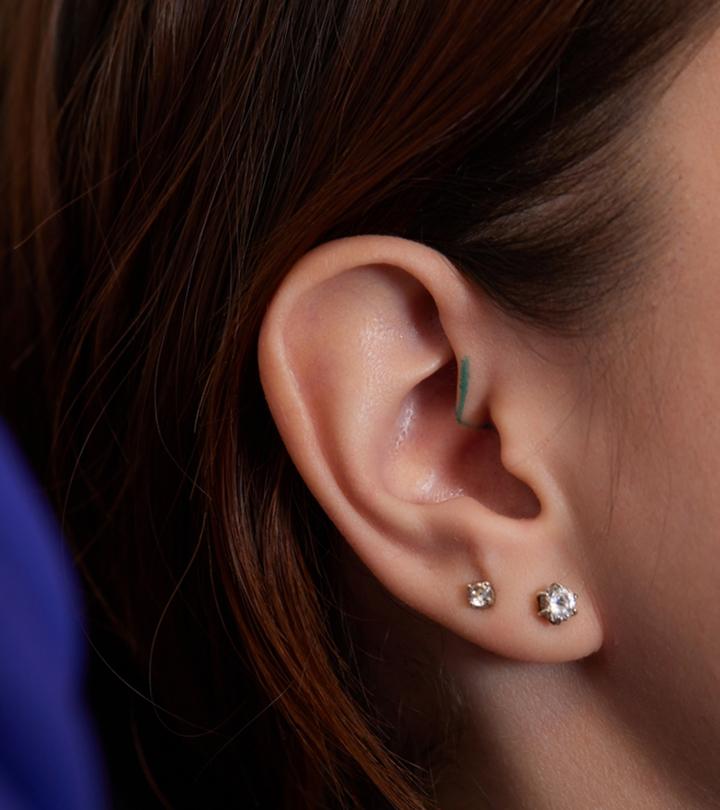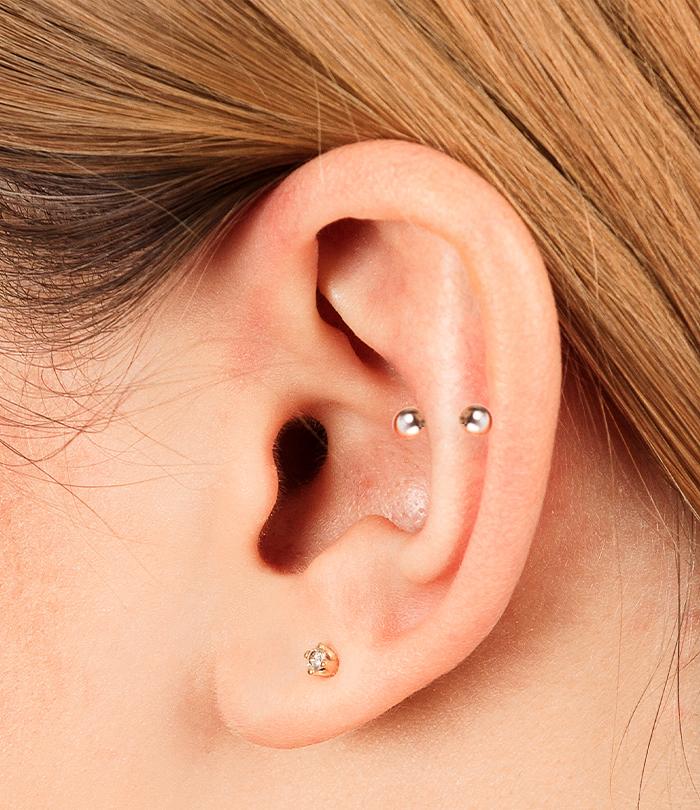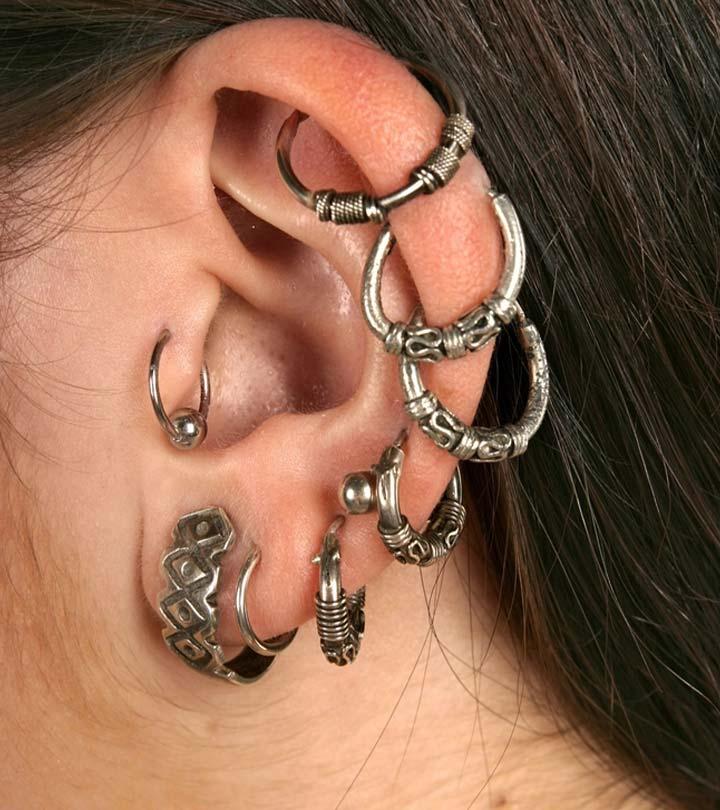How To Prepare For A Tattoo: A Complete Checklist
Equip yourself with simple tips and tricks for a smooth and pain-free tattoo experience.
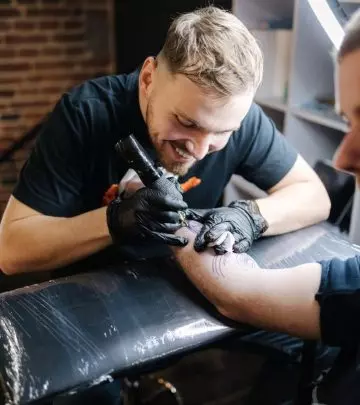
Image: Shutterstock
Getting a tattoo is a life-changing experience. It is a creative way to express your individuality and capture a piece of your story. However, incorrect and incomplete information can leave you with disappointing results and health complications. Hence, learning how to prepare for a tattoo is crucial to a smooth, safe, and satisfying process. In this article, we will learn the dos and don’ts of preparing for your tattoo session and debunk common myths for a flawless yet deeply meaningful experience. Do not wait anymore and scroll down to know more before embarking on your inking adventure!
In This Article
What To Do Before Getting A Tattoo
- Finalize A Design
Spend several weeks, if not months, brainstorming before finalizing your tattoo design. Take the size and tattoo placement into consideration before booking your appointment. Make sure it resonates with your personality and is something you will cherish for life.
- Research Your Artist
Take the time to research and find a skilled tattoo artist whose style aligns with your vision. Check their portfolio, read online reviews, and visit several tattoo shops in-person before finalizing on the right one. Clearly express your expectations, ask questions, and trust their expertise. A collaborative approach ensures a more satisfying experience for both you and the artist.
- Sleep Well
Get a good night’s sleep before your tattoo session to prepare your body for the experience. A well-rested body is less likely to be sensitive to pain and more likely to interpret the body’s reactions correctly.
- Eat Well
Fuel your body with a balanced meal before heading to your appointment. It will help maintain your stable blood sugar levels and give you the energy to get through the session comfortably.
- Stay Hydrated
Drink plenty of water before and during the tattoo session to keep your skin hydrated. This will help the tattoo ink penetrate better, make the session more comfortable, and speed up the recovery process.
 Quick Tip
Quick Tip- Prep Your Skin

Clean it with an antibacterial soap and lukewarm water and and moisturize the area properly before the session. This is vital to avoid dry and irritated skin and reduce the likelihood of bruises and infection.
- Know Your Pain Tolerance
While everyone’s pain threshold is different, keep yours in mind and select the appropriate area properly. Be mentally prepared for some discomfort. But remember, this pain is temporary and part of the tattoo process.
- Dress Comfortably
Opt for loose, comfortable clothing and avoid ones that will restrict access to the tattooed area. Plus, avoid sun exposure before your session as tanned skin may distort the final color and output.
- Bring A Friend
Ask a close friend to accompany you for your tattoo session. Choosing someone who understands you well will help you stay calm during the process.
Jasmine, a blogger, shared how she prepared for her tattoo session in her blog. She wrote, “I chose to watch a few youtube videos. I went for pancakes with my friends, which I think is a great fuel (i).”
As mentioned above, eating a healthy meal is crucial for a smooth and comfortable tattoo experience. Find out the foods you should eat before a tattoo session in the next section.
What To Eat Before A Tattoo Session
Opt for a high-protein over sugary snacks and processed foods for energy and stamina (2). A solid meal ensures you stay alert during the process. Low blood sugar can amplify your physical reaction to the pain, making it more likely for you to feel faint. Hence, consume high-protein foods to help prepare your body for the tattooing process.
 Quick Tip
Quick TipEating a healthy and balanced meal and staying hydrated is important for a smoother tattooing experience. However, there are some things one should avoid drinking before the session. Find out more in the next section.
Can You Drink Before Getting A Tattoo?
When it comes to getting a tattoo, what you drink matters just as much as what you eat. Hydration plays a crucial role in making your skin tattoo-friendly as dehydration can increase the risk of cuts. It can also cause headaches and make you feel unwell overall.
Stop drinking alcohol 24 to 48 hours before your tattoo day. Alcohol can impair the immune system and increase the risk of bleeding during the process (4).
Alcohol is one of the things you should avoid before a tattoo session. But that is not all. Check out the next section for some other things you should avoid before getting a tattoo.
What Not To Do Before Getting A Tattoo

Here are the following things you should not do before getting a tattoo:
- Stop taking blood-thinning medications 24 hours before the big day as it can increase the risk of bleeding.
- Avoid caffeine before the session as it can make you feel anxious and restless during the process.
- Avoid shaving and exfoliating the tattooed area a day prior to the appointment as it might not heal by then.
- Skip your workout session a day before the tattoo session to allow the body to completely rest and prepare.
Getting a tattoo requires careful consideration and preparation. From thoughtful design selection to staying hydrated and well-nourished, each step plays a crucial role in ensuring a positive and exciting experience. Remember, getting a tattoo is a collaboration between you and your tattoo artist. Hence, researching your potential tattoo artist and studio is crucial for a smooth, hygienic, and safe experience. Ensure that you avoid caffeine and alcohol and get adequate rest for a pain-free and memorable tattooing experience.
Frequently Asked Questions
Can you take Advil before a tattoo?
No, avoid taking Advil before your session as it may thin the blood and increase the risk of bleeding during the painful process (5). You can consult your tattoo artist or dermatologist and use a numbing cream to decrease the pain during the session.
Can you take Tylenol before a tattoo?
Yes, Tylenol is considered a safer option for pain relief before getting a tattoo as compared to Ibuprofen. However, consult your tattoo artist or a healthcare professional before taking any medication to ensure it will not interfere with the tattooing process or your health.
How big should a first tattoo be?
This depends on your personal preference. If this is your first time, opt for a smaller size or a smaller piece of a larger design. This will give you an idea of the tattooing process and help you understand your level of pain better.
Key Takeaways
- Consume a high-protein and vegetable meal before your tattoo to get through the session.
- Spend ample time finalizing your tattoo design and researching a skilled and experienced tattoo artist to ensure your vision aligns with their expertise.
- Stay hydrated, avoid alcohol and blood-thinning medications, and get a good night’s sleep for a smoother experience.
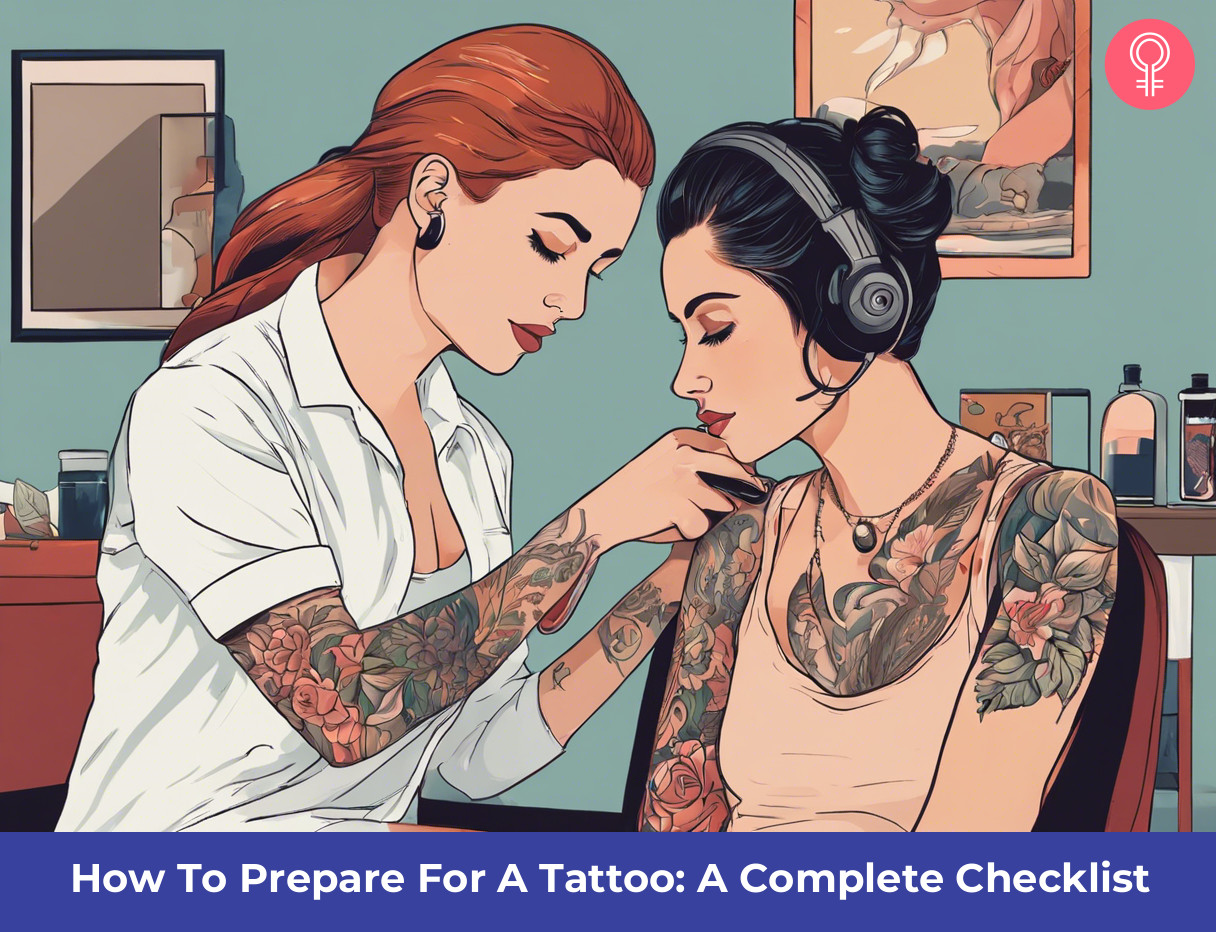
Image: Stable Diffusion/StyleCraze Design Team
Properly preparing for your tattoo session will ensure a smooth experience for both you and your tattoo artist. Check out this video for smart tips and interesting information to help you prepare well before getting inked.
Personal Experience: Source
StyleCraze's articles are interwoven with authentic personal narratives that provide depth and resonance to our content. Below are the sources of the personal accounts referenced in this article.
(i) First tattoo! – tips & advicehttps://jasminemcrae.blogspot.com/2014/07/first-tattoo-tips-advice.html
References
Articles on StyleCraze are backed by verified information from peer-reviewed and academic research papers, reputed organizations, research institutions, and medical associations to ensure accuracy and relevance. Read our editorial policy to learn more.
- Vitamin C in Disease Prevention and Cure: An Overview
https://www.ncbi.nlm.nih.gov/pmc/articles/PMC3783921/ - Beyond muscle hypertrophy: Why dietary protein is important for endurance athletes
https://www.researchgate.net/publication/262147782_Beyond_muscle_hypertrophy_Why_dietary_protein_is_important_for_endurance_athletes - The Hematological Complications of Alcoholism
https://www.ncbi.nlm.nih.gov/pmc/articles/PMC6826798/ - Vitamin K – sources, physiological role, kinetics, deficiency, detection, therapeutic use, and toxicity
https://academic.oup.com/nutritionreviews/article/80/4/677/6362591 - The effect of ibuprofen on bleeding during periodontal surgery
https://www.researchgate.net/publication/5606112_The_effect_of_ibuprofen_on_bleeding_during_periodontal_surgery




